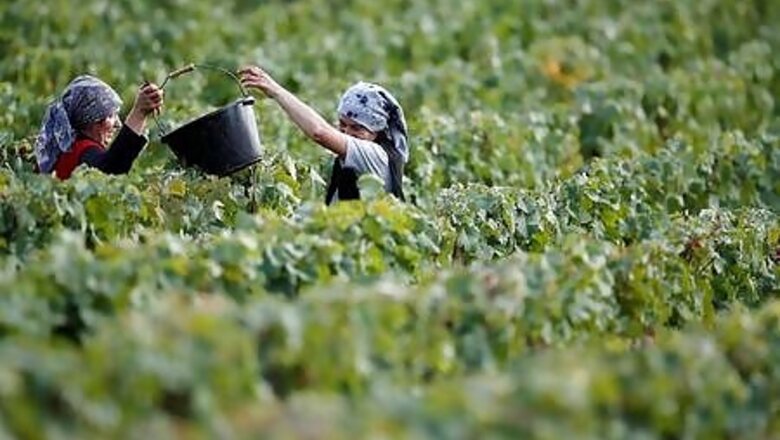
views
PARIS France’s champagne makers on Tuesday reached a last-minute agreement to reduce the amount of grapes they will harvest this year as they try to recover from a collapse in sales caused by the coronavirus crisis.
With harvesting off to an early start after warm, dry weather this year, producers struck a deal to cut the volume of grapes to be gathered to 8,000 kg per hectare, down nearly 22% from 10,200 kg in 2019, the CIVC industry body said in a statement.
Producers have been locked in discussions for weeks over the size of any cut to harvest output. Leading champagne houses have pushed for a steep fall to shore up prices while some growers have sought a smaller reduction to take advantage of a promising 2020 crop.
However, the volume that will be processed this year will be adjusted in relation to demand, the CIVC said.
“This system … will allow both grape sellers to maintain an acceptable income and also distributors to respond to customer demand and preserve their cashflow,” it said.
This would mean that a 1,000 kg portion of the harvest yield will only be used this season if exports reach a certain level, a CIVC spokesman added.
That could bring the harvest volume actually pressed to 7,000 kg per hectare, down 31% from last year.
The champagne sector has been flattened this year by lockdown measures to curb the novel coronavirus, with sales drying up in the face of the closure of hotels, restaurants and bars, as well as the cancelling of hospitality events.
CIVC has estimated that as many as 100 million bottles will go unsold this year, representing lost turnover of 1.7 billion euros ($2 billion).
Harvesting of champagne grapes officially got under way on Monday, a very early start that continues a relatively recent trend attributed to climate change.
Disclaimer: This post has been auto-published from an agency feed without any modifications to the text and has not been reviewed by an editor




















Comments
0 comment